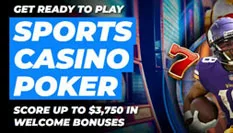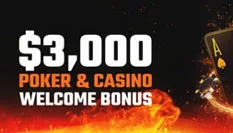Avoid these Mistakes with Raises on the River
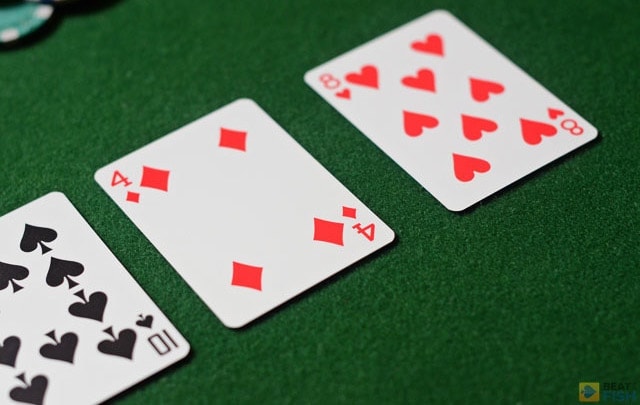
A common mistake that I see players make in online no-limit Hold’em cash games and tournaments is raising on the river with a medium-strong hand.
This usually takes place when the player in question has position and has taken the lead on a previous betting round and is up against just one opponent.
Often, players will raise on the river for what they think is a value bet with the best hand. Unfortunately, their opponent is often laying a trap that could’ve been avoided by just checking or calling on the end.
Let me show a couple of example hands that I recently watched play out online and how to avoid this dangerous leak.
Table of Contents
A $2/4 NL raise on the river
The following hand is from a $2/4 no-limit hold’em cash game. Put yourself in the position of our player here and think to yourself what you would do in each betting situation. Our player is holding:


You’re on the button and there are two other callers ahead of you. You just call the minimum bet of $4. The big blinds just checks to see the flop. 4 of you stay in to see:



You’ve hit top pair with a strong kicker without a big draw on the board. The other players check around to you and you make a nice bet of $16 – the size of the pot. The big blind sticks around to make the call but the other players fold. The two of you watch the turn fall:

Making a value bet with what should be the best hand you bet another $40 into the $48 pot. The big blinds curiously calls. The river is a:

This time, the big blind bets out $16 into a $128 pot. You put the big blind on a busted flush draw or a raggedy Ace so you make another “value” bet and raise him to $50. The big blind just calls your raise and turns over 5h-8h:


Where this losing player went wrong
Where did this player go wrong in the hand?
An easy argument can be made that he should’ve raised to 3 or 4 times the big blind with a suited A-Q from the button. This might drive out trash hands (such as the 5-8) and give you leverage on the flop in position.
However, his call is reasonable if he just wants to take a flop and he doesn’t believe that he can thin the field with a raise. Continuing with such a hand is tough on the flop if you don’t hit a pair or a draw and you raised preflop.
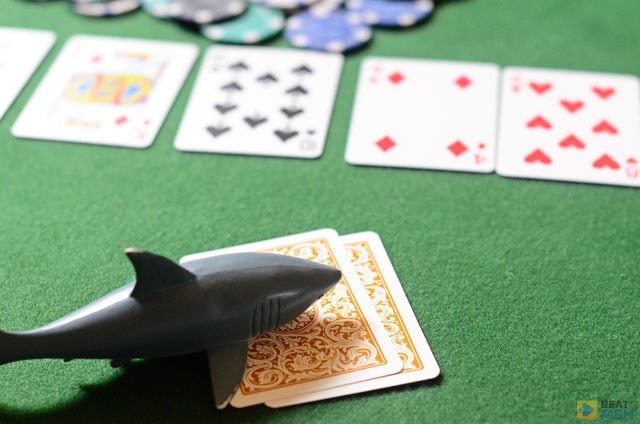
The flop and turn
On the flop and turn, I like his decisions. To discourage a cheap draw and build a pot on the flop, this player bet out about the size of the pot. On the turn, there were two hearts showing and he gets checked to again. He makes a nice bet of $40. When his opponent check-calls this decent-sized bet, alarms should’ve been going off in his head.
The big river raise mistake
On the river his passive opponent suddenly makes a bet. Our player has top pair with a great kicker, but the board has now paired. His opponent is on the big blind and could have anything: A-K, A-2, or maybe even a 5.
Our hero only has one pair and his raise will usually only get called by a hand that has him beat.
I recommend that in a similar situation (even with A-K) that players just call and showdown their hand. A lot of players play Ace-trash or worse… especially online. Raising on the river will rarely be profitable here.
A bad call on the river in a $1/2 NL game
Let’s look at one more quick example from a $1/2 no-limit cash game. The big blind checks to see a flop against 2 limpers and holds:


On the flop he hits the absolute nuts as he watches the following flop fall:



Hoping to trap one of the limpers who might have hit an Ace, he just checks. The two players behind him also check. The turn card is:

Fearing a possible flush and a draw to a higher straight the big blinds bets out $10 into the $6 pot. Only one player makes the call and 2 of them see a river of:

The big blind bets out another $15 and his opponent raises to $45. The big blind quickly calls and sees his opponent turn over


The river was key
Again, the first mistake was slowplaying the nuts on the flop, but the biggest mistake was calling on the river.
He had the “idiot end” of the straight and anyone with a 7 has him dominated. If you find yourself in a similar situation where the nuts went wrong just check and/or release your hand to a big raise.
Why there is no point in raising the river with medium holdings
A lot of players get attached to their hands and make the mistake of betting and/or raising on the river when they’re only holding a medium-strong hand like top pair.
Also, suited connectors that make flushes and straights should be played very strongly because another suited card or connector will often cripple the hand. If you have the absolute nuts (or close to it) on the river feel free to continue value betting and raising.
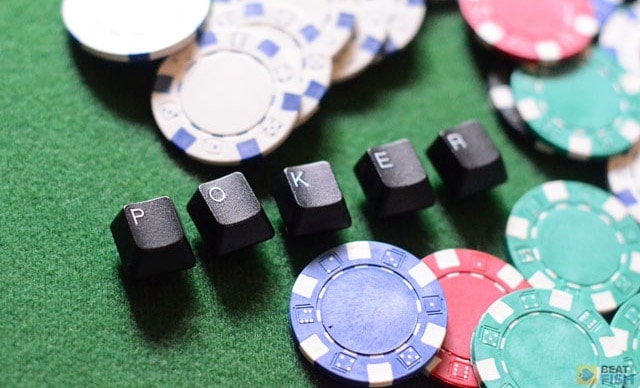
What to do against sudden aggression
However, if you’re looking at a dangerous board and a suddenly aggressive opponent, tend to just showdown the hand. This is especially true when an opponent appears to be chasing a draw from his calling patterns and the draw is completed on the river.
In this instance, there is no reason to raise or even bet on the river if your opponent checks to you.
